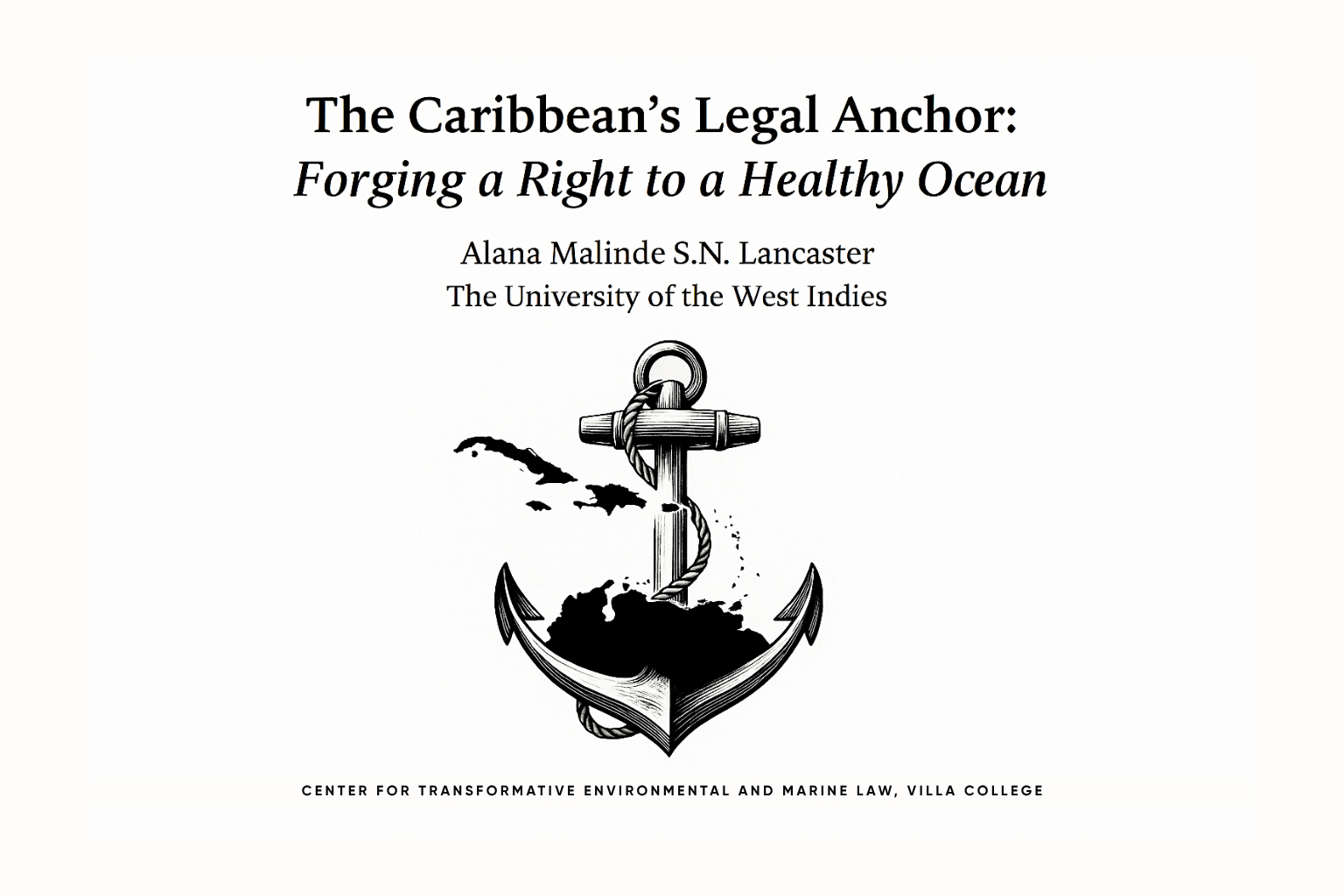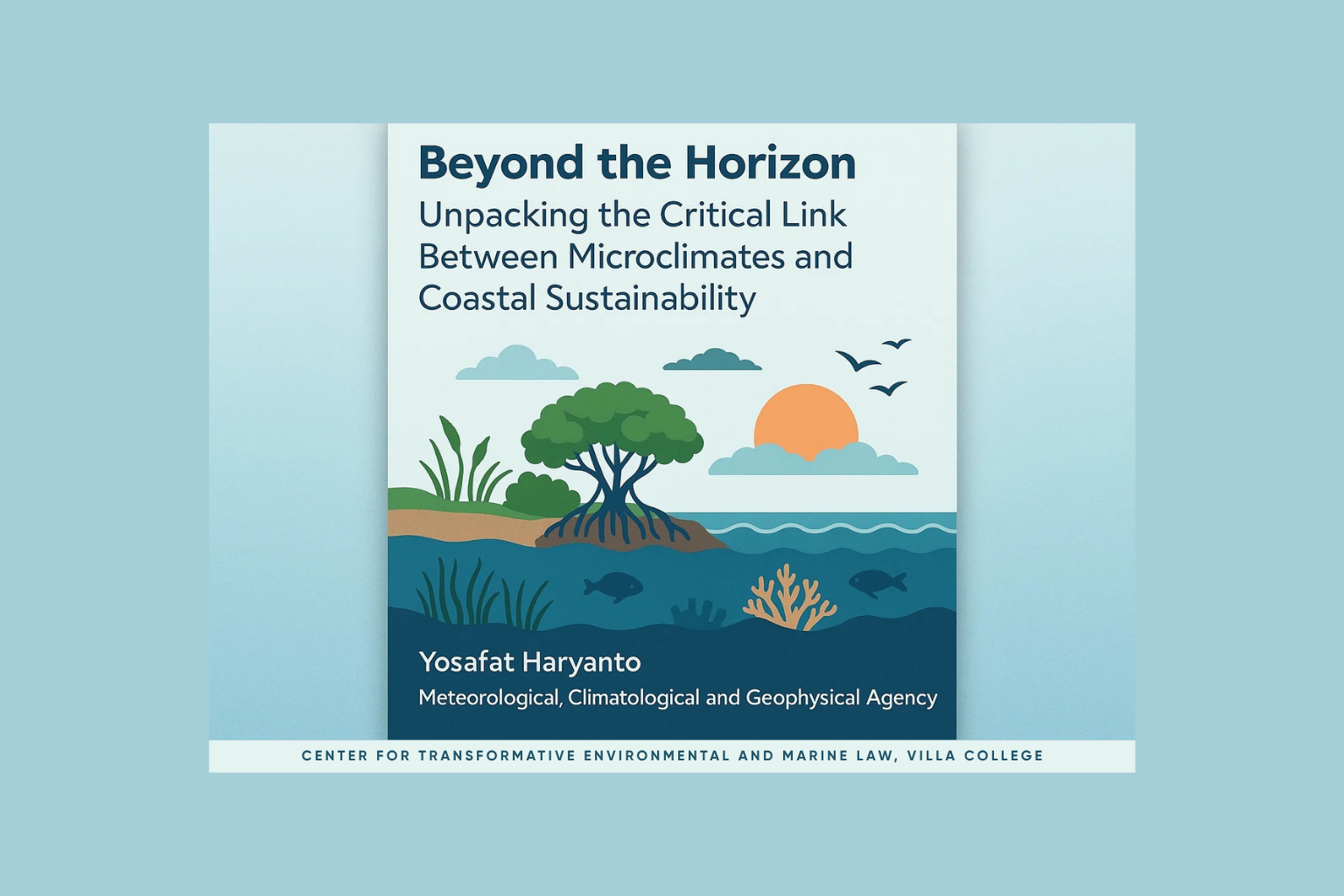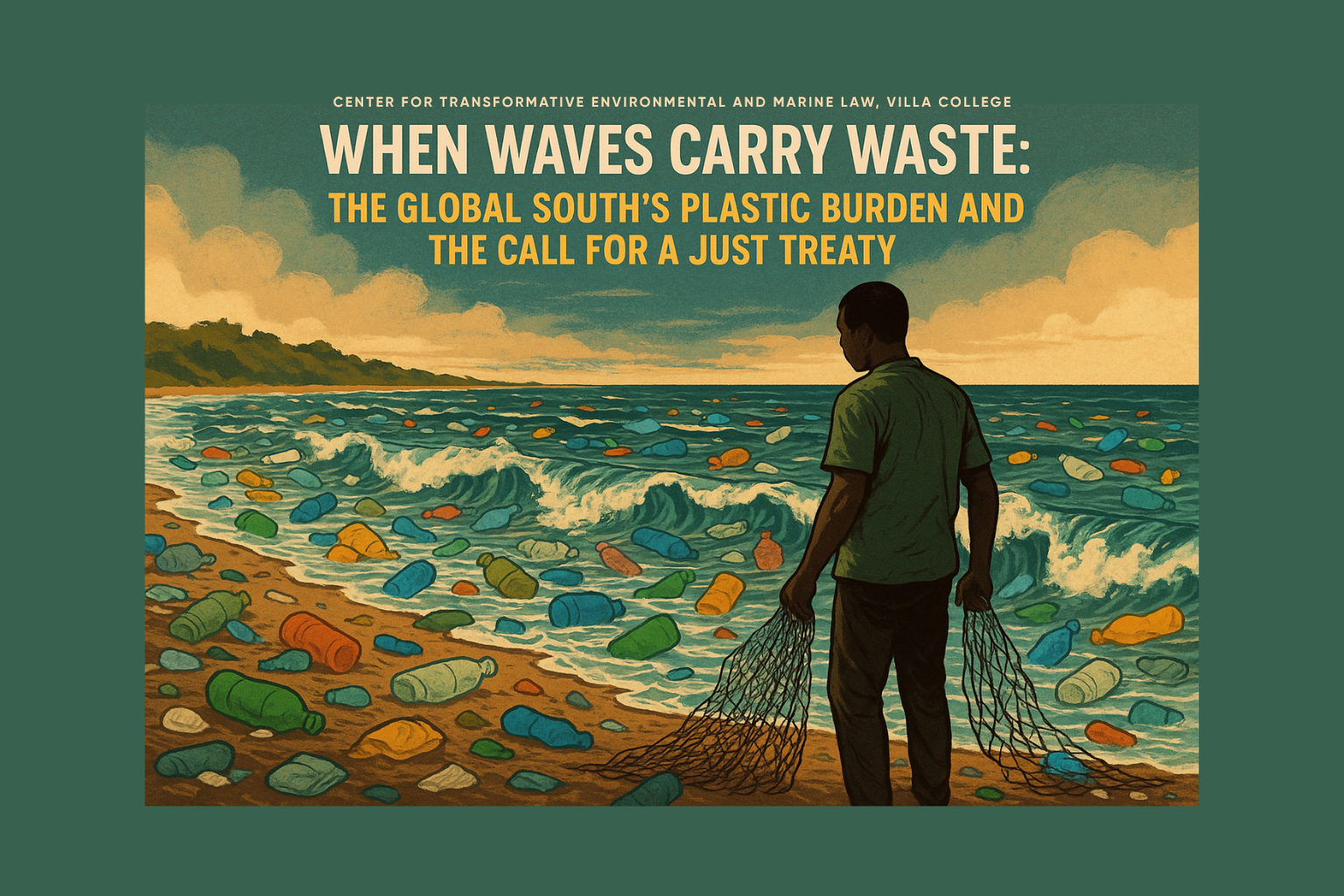World Ocean’s Day Series: Forging Justice on the Frontlines: New Legal Pathways for Caribbean Climate Justice
On June 10, 2025, the Center for Transformative Environmental and Marine Law at ������Ƶ proudly launched a new collection of research, "The Oceans-Sustaining What Sustains Us," on the sidelines of the UN Oceans Conference. A standout contribution from this collection by Alois Aldridge Mugadza of The University of the West Indies, titled "Holding Industrialised Nations Accountable," provides a powerful legal blueprint for one of the most pressing issues of our time. It grapples with a stark injustice: the Caribbean region, responsible for less than one percent of global greenhouse gas emissions, faces an existential threat from a crisis it did not create. The paper explores the critical question of how these nations can legally compel high-emission states to take responsibility for the profound and disproportionate harm caused.
The research outlines a multifaceted legal strategy, moving beyond pleas for aid to demands for accountability grounded in established legal principles. A foundational approach involves invoking core tenets of international environmental law, specifically the 'no-harm' principle, which obligates states to prevent their activities from causing significant transboundary environmental damage, and the 'polluter pays' principle. Together, these principles provide a strong normative basis for demanding both mitigation action and financial compensation from the primary historical emitters whose actions are driving sea-level rise, intensifying hurricanes, and destroying the coral reefs vital to Caribbean economies and cultures.
Building on this foundation, the paper highlights the growing power of human rights-based litigation and the strategic use of international courts. Inspired by landmark cases like the European Court of Human Rights' 2024 judgment in KlimaSeniorinnen v Switzerland, Caribbean States can argue that climate inaction by industrialised nations constitutes a direct violation of fundamental human rights, including the rights to life, health, and a healthy environment. This includes seeking an advisory opinion from the International Court of Justice to clarify state obligations, as well as pursuing innovative transnational tort cases that hold major corporate polluters directly liable for damages in their home jurisdictions, mirroring the groundbreaking Dutch court ruling against Royal Dutch Shell.
The analysis further advocates for a strategic push to reform existing international mechanisms and reframe the entire conversation around climate finance. The paper argues that the UN's Loss and Damage Fund, while a significant step, must be transformed from a system of voluntary contributions to a mandatory, rights-based mechanism of redress. This connects to the powerful concept of climate reparations, which asserts that industrialised nations owe an 'ecological debt' for centuries of fossil fuel-driven development at the expense of the global climate. This approach demands restorative justice for historical and ongoing ecological plunder, rather than framing financial support as charity.
Ultimately, Mr. Mugadza's research concludes that there is no single solution. Instead, the pursuit of climate justice requires a sophisticated and coordinated campaign that employs every available legal tool. Success will depend on weaving together several strands of legal action, such as arguments before international courts, human rights claims, demands for reparations, and advocacy for institutional reform. By forming strategic alliances and pioneering innovative legal theories, the Caribbean is not only fighting for its own survival but is also transforming the global conversation on climate accountability and setting crucial precedents that will safeguard vulnerable communities worldwide.
Mugadza, A. A. (2025). Holding Industrialised Nations Accountable: Legal Pathways for Caribbean Climate Justice. In T. Sanni (Ed.), The Oceans-Sustaining what Sustains Us (pp. 180-199). Center for Transformative Environmental and Marine Law, Faculty of Shariah and Law, ������Ƶ, Maldives.



